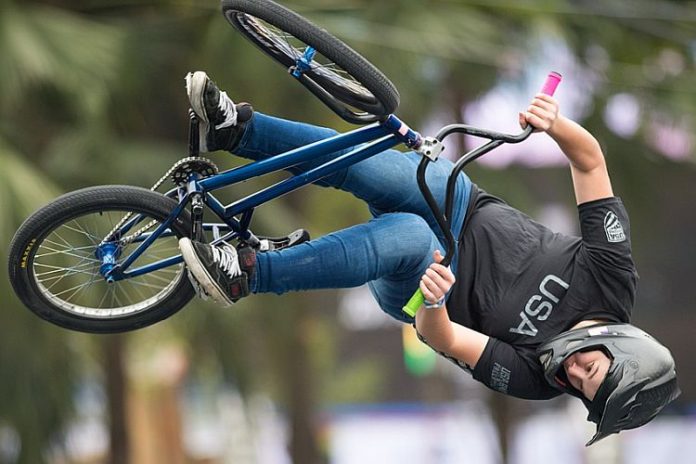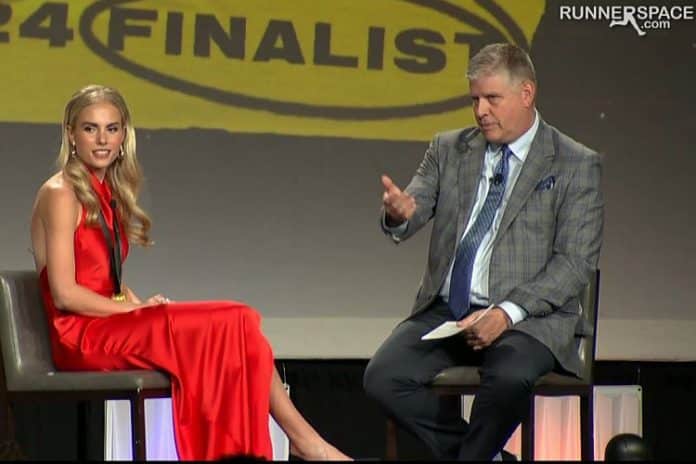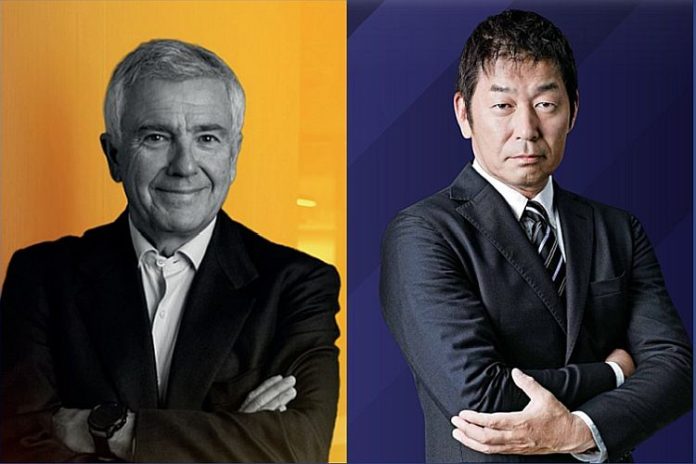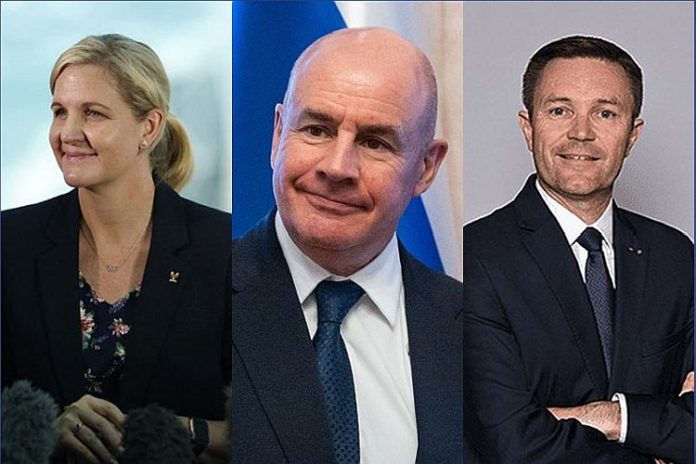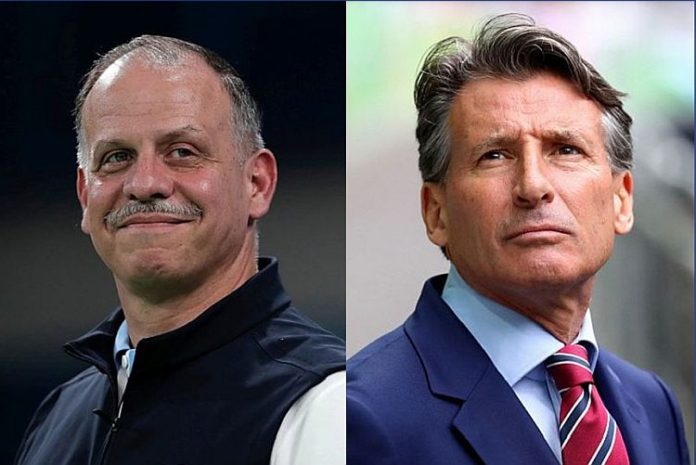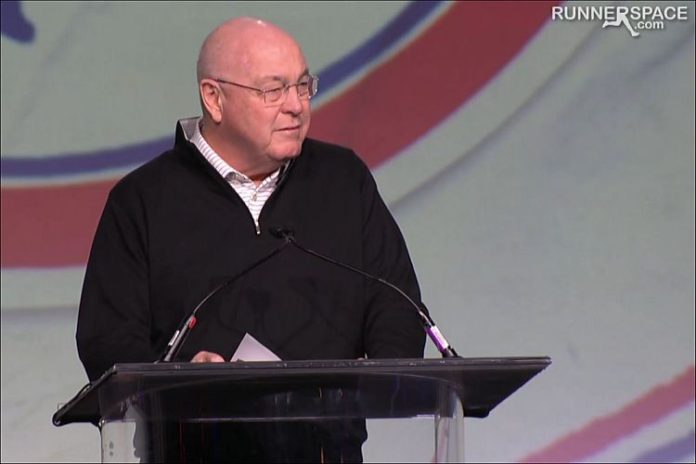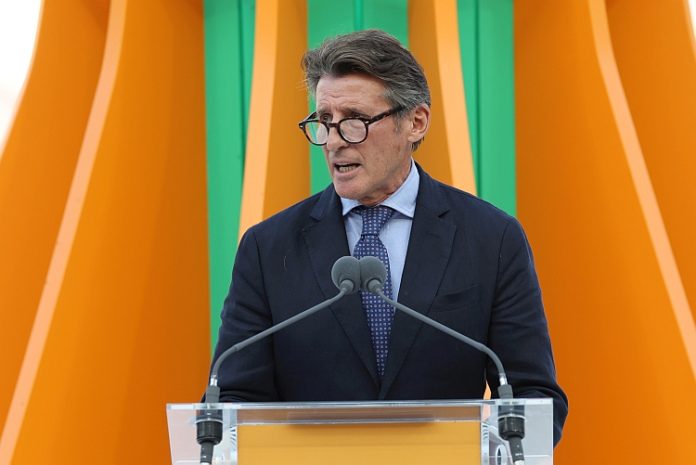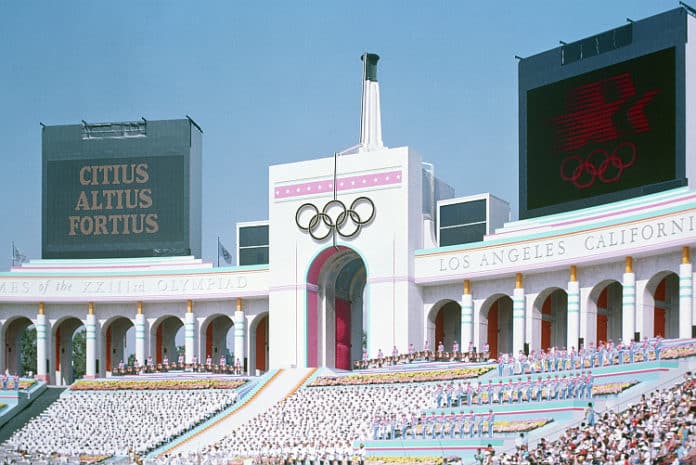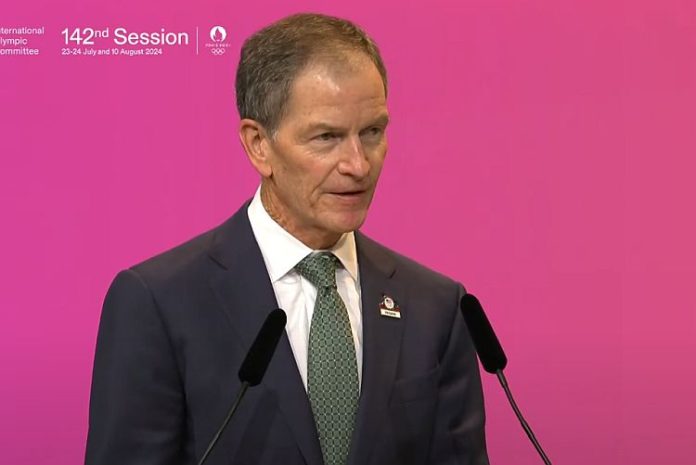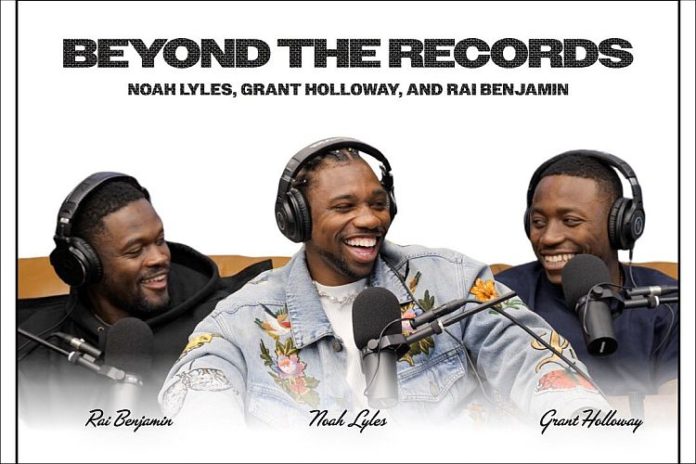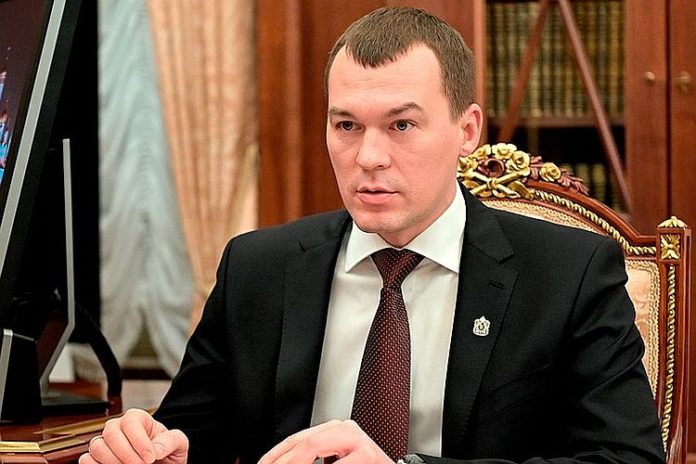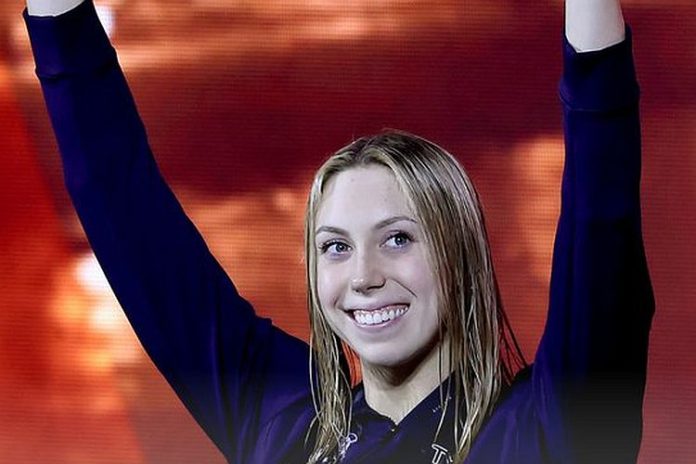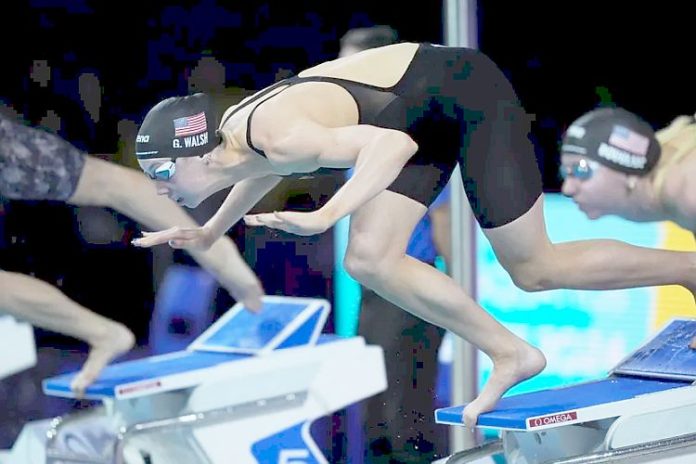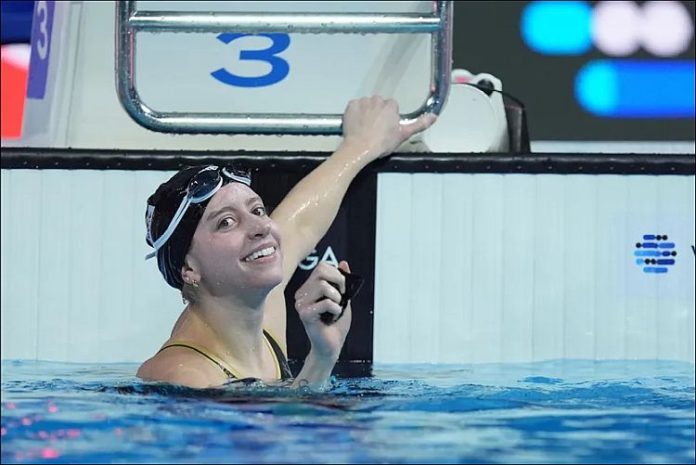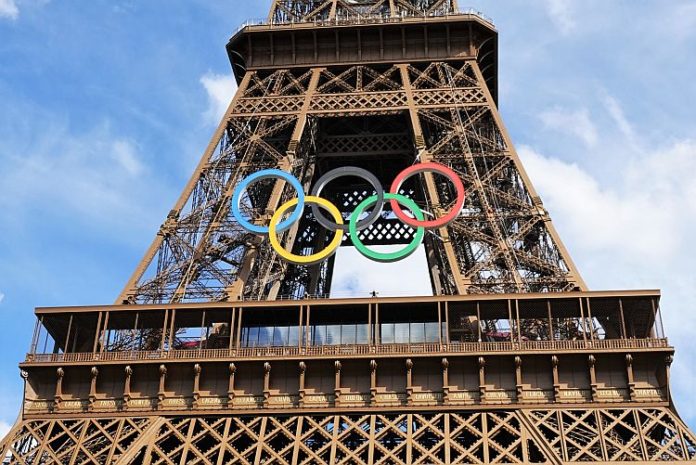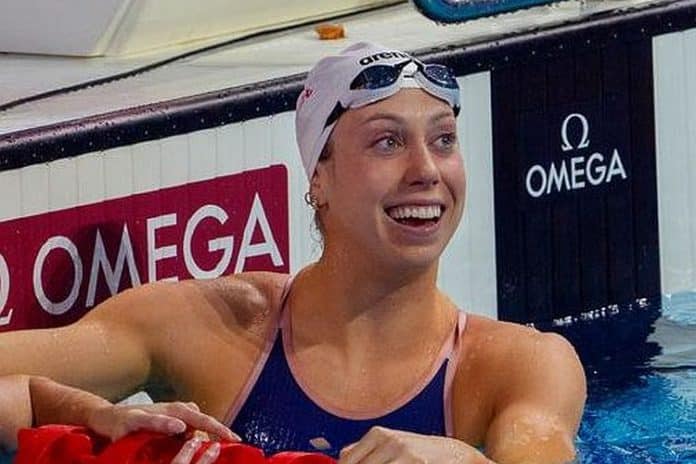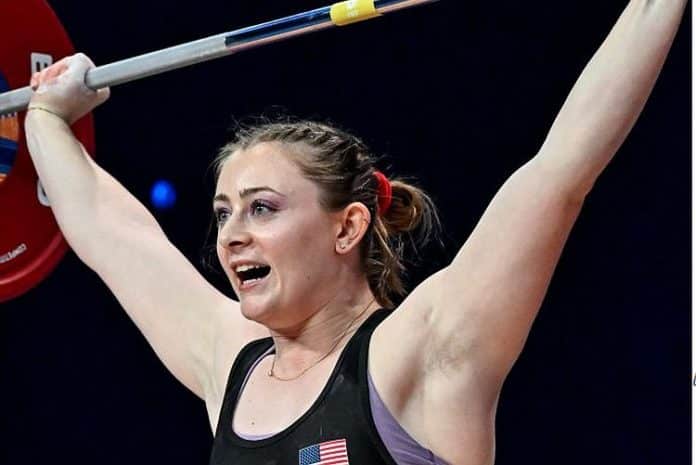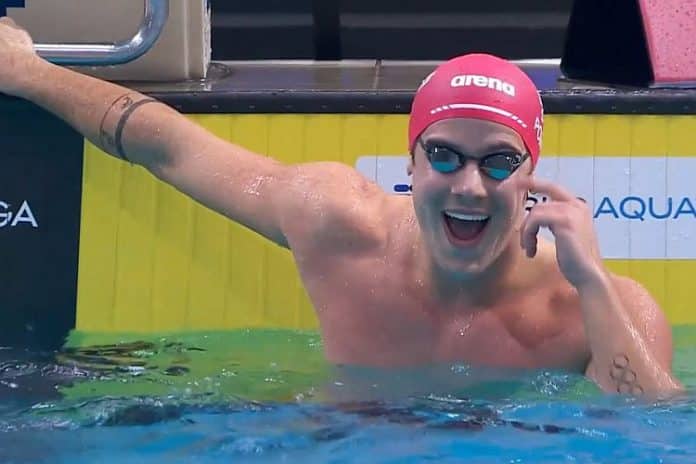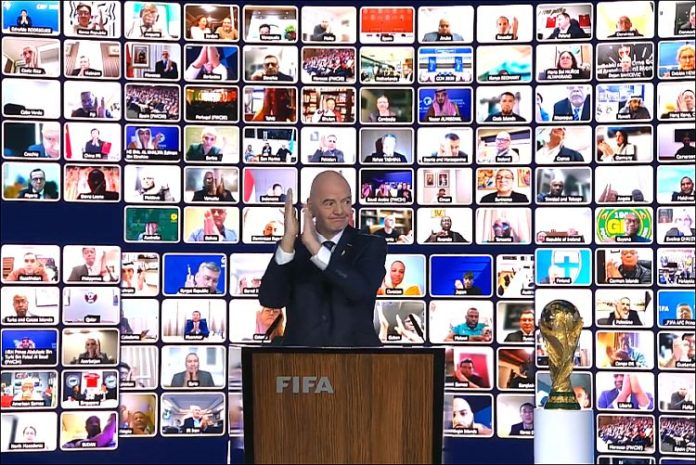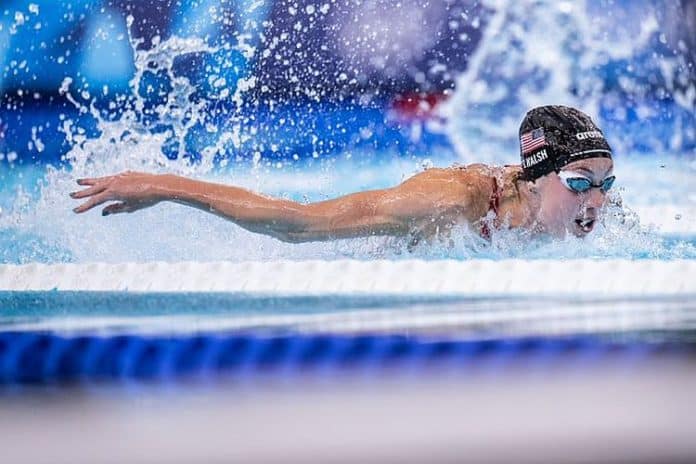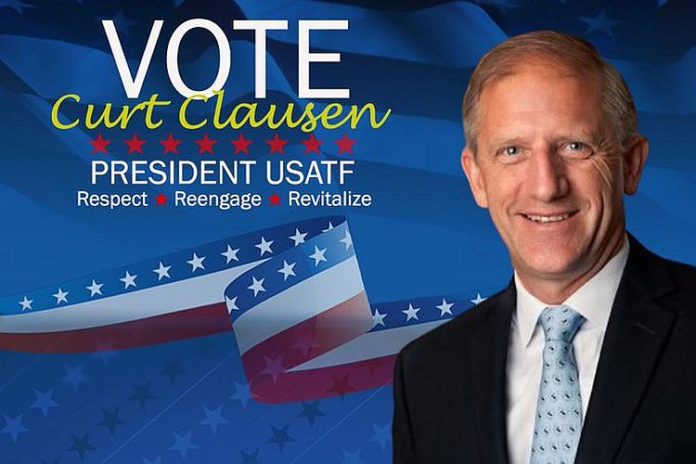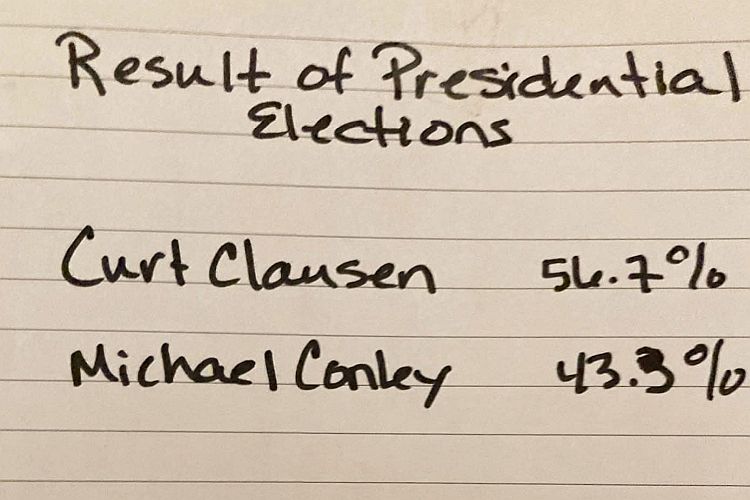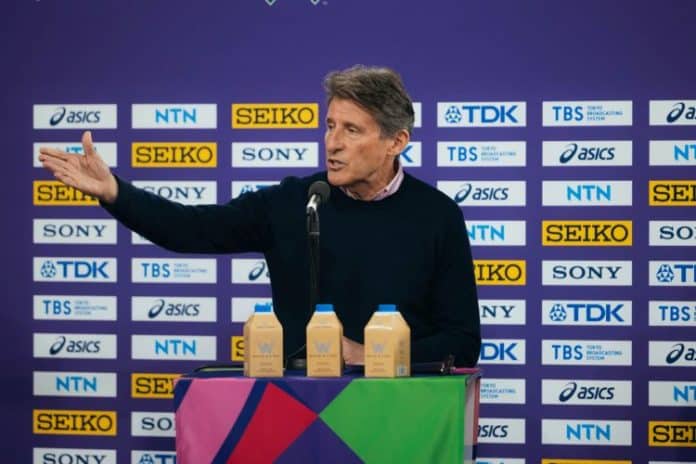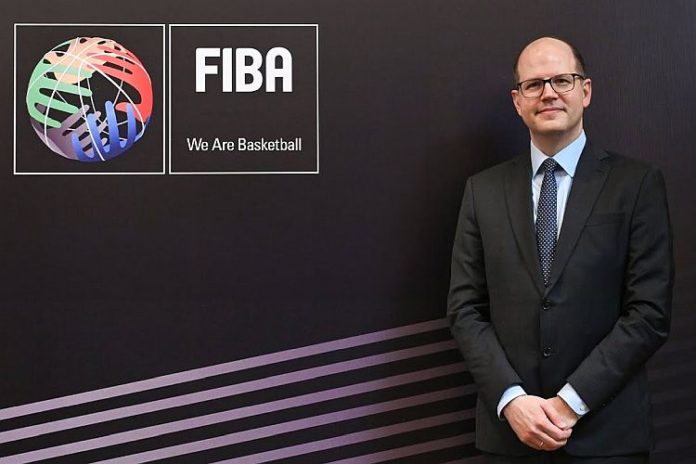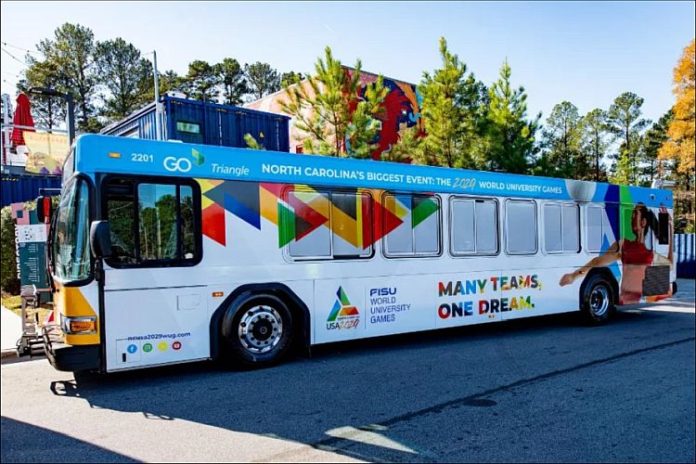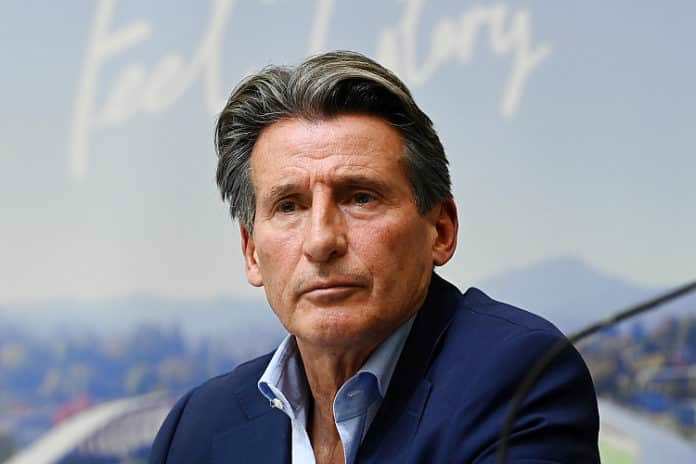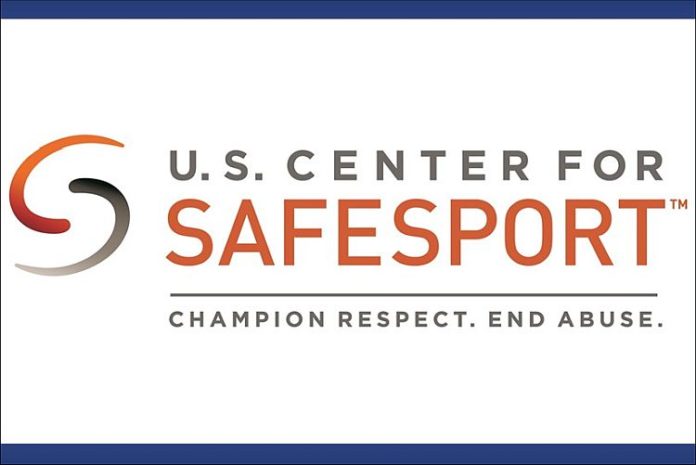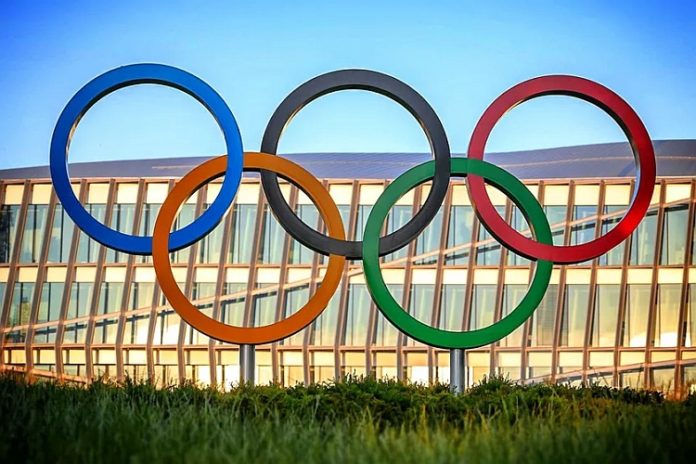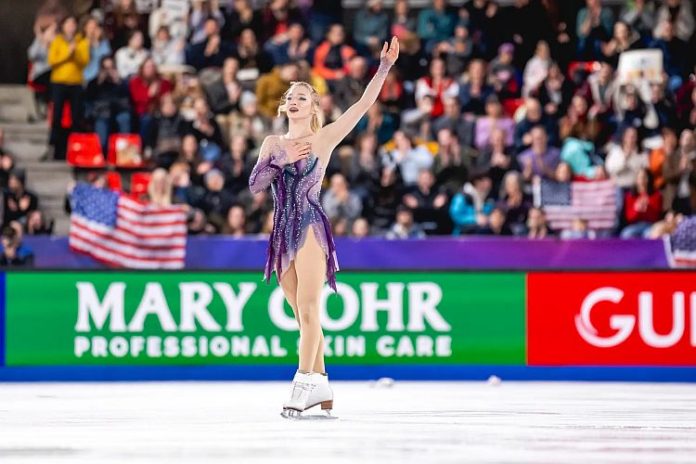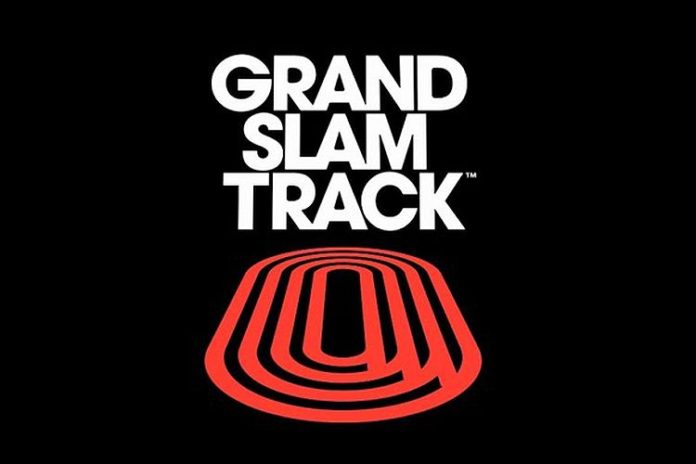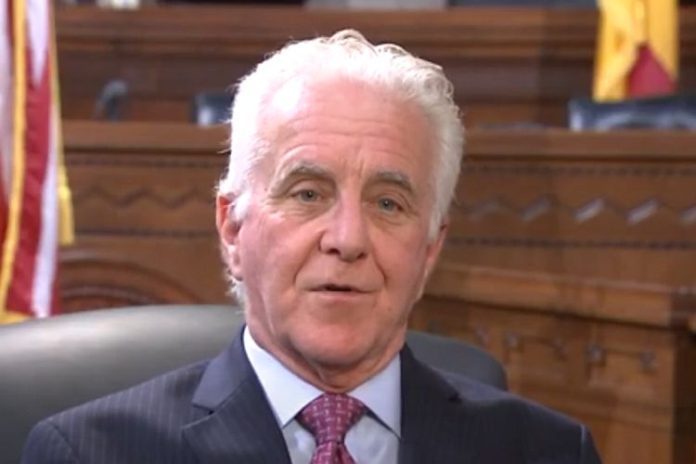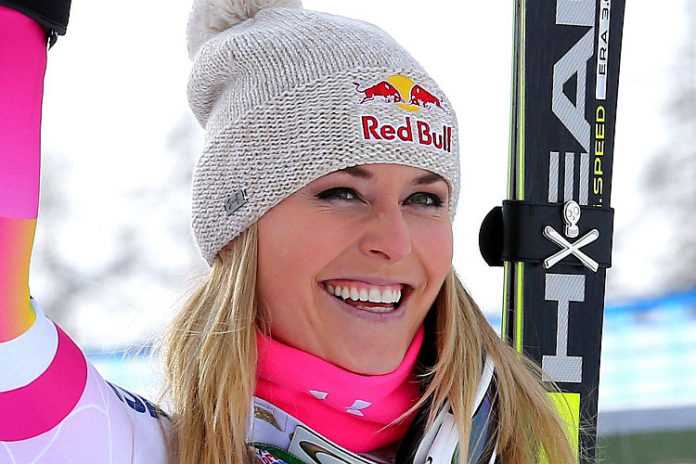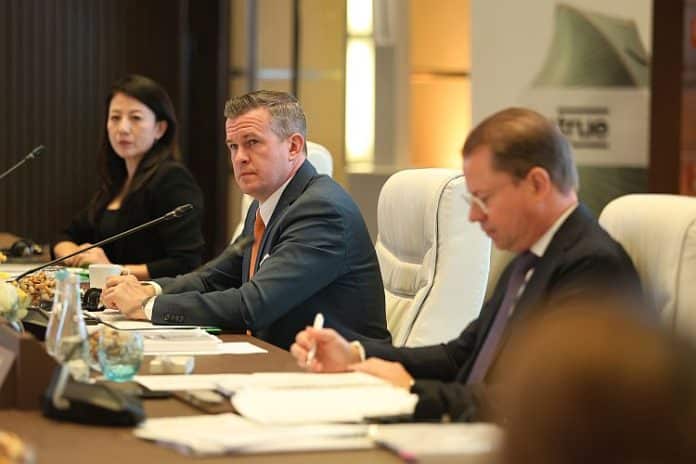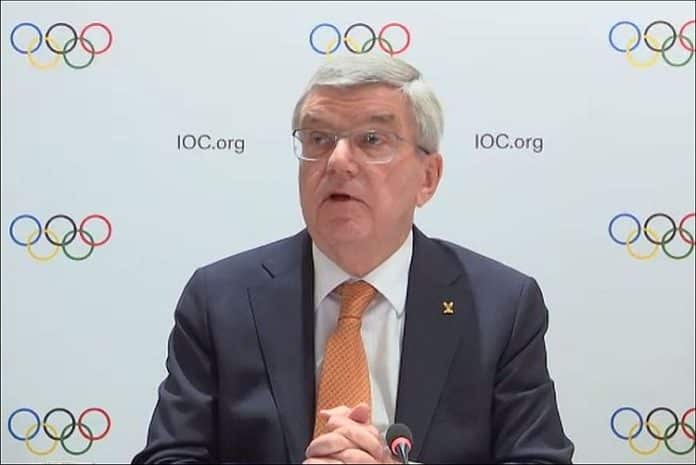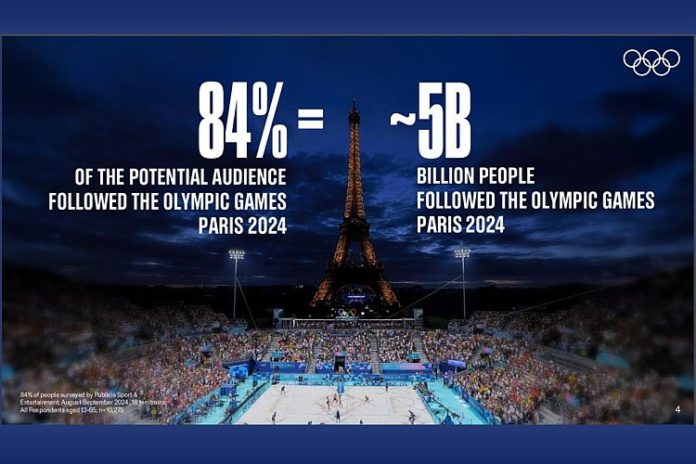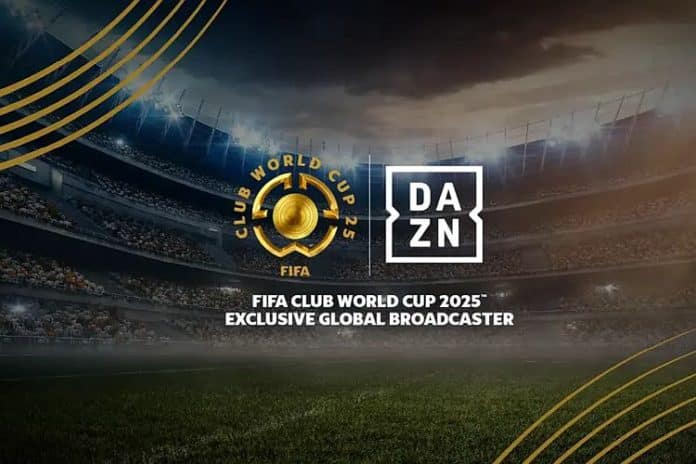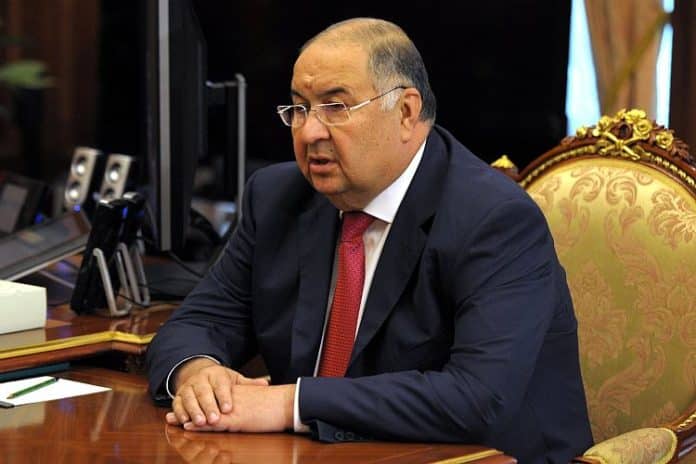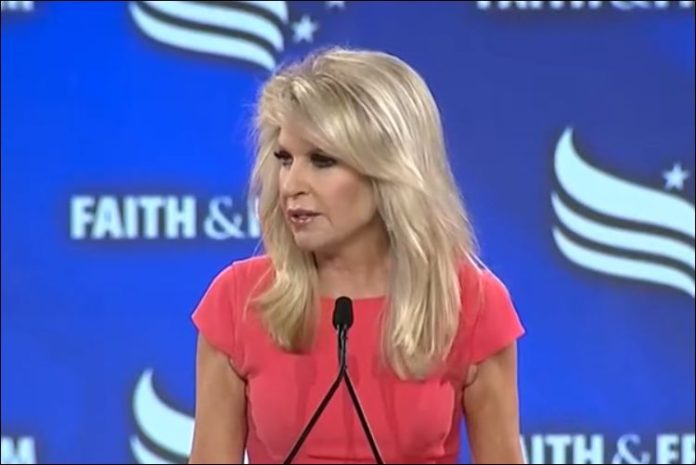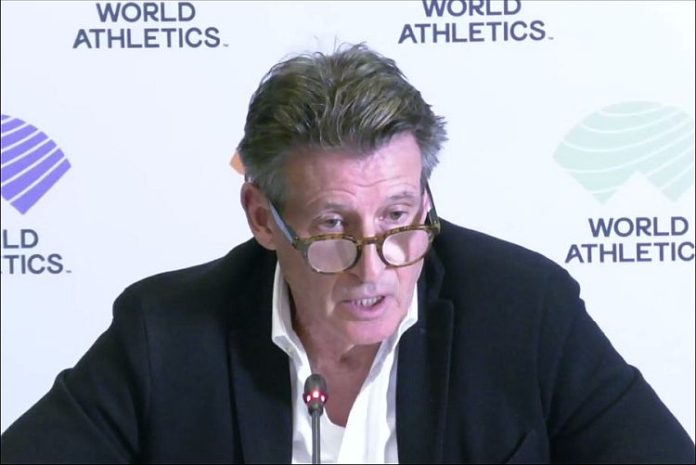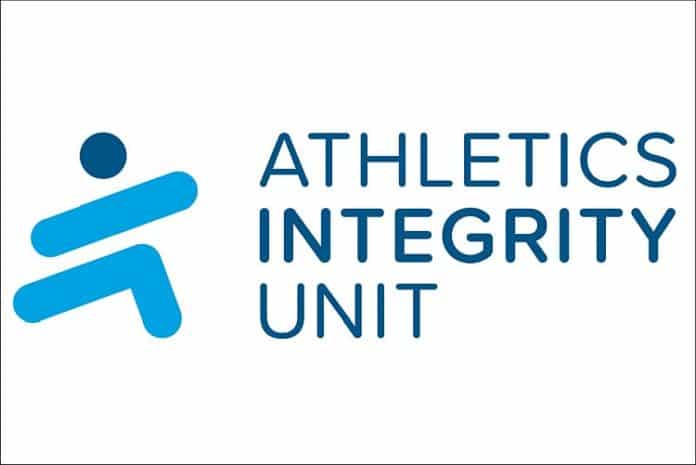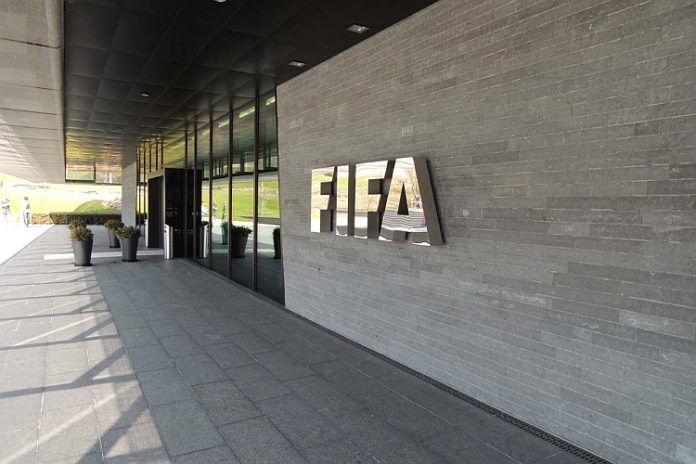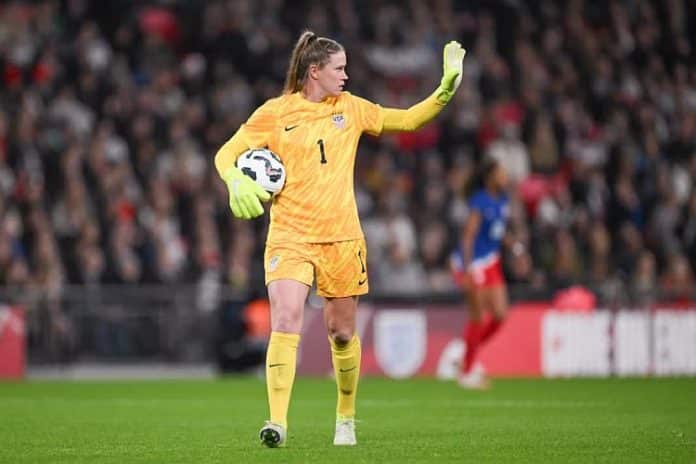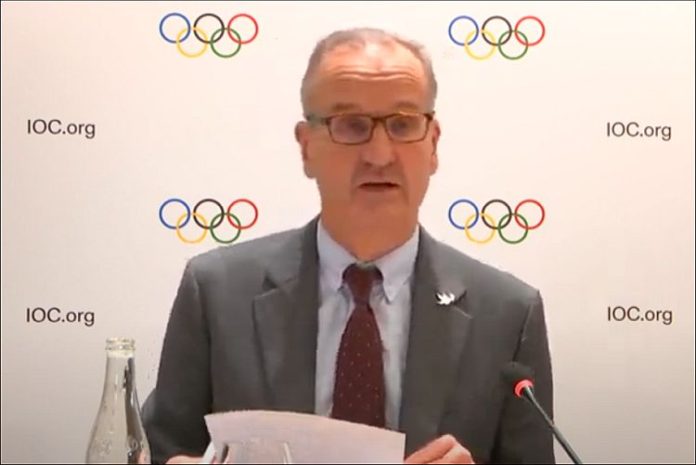★ The Sports Examiner: Chronicling the key competitive, economic and political forces shaping elite sport and the Olympic Movement.★
★ To get the daily Sports Examiner Recap by e-mail: sign up here! ★
≡ THE 5-RING CIRCUS ≡
● NCAA ● There are enormous problems in collegiate sport today, but comments from NCAA President Charlie Baker at a Senate Judiciary Committee hearing last Tuesday raised questions once again about the organization’s view of transgender men in women’s competition.
Sen. Josh Hawley (R-Missouri) asked Baker about the NCAA’s policy of allowing transgender men to play on women’s teams, with Baker stating, “Because we believe that is consistent with Federal policy.”
Hawley also asked about the NCAA policy, “transgender student athletes should be able to use the locker room, shower and toilet facilities in accordance with their gender identity,” with Baker replying:
“Everybody else should have an opportunity to use other facilities if they wish to do so,” and “I believe our guidelines give people optionality in how they choose to use their facilities. … We told the local folks who hosted our tournaments that they need to make accommodations for the people who are playing.”
Sen. John Kennedy (R-Louisiana) asked Baker if a biological male would also have a physiological advantage playing against a biological female, and Baker stated, “There’s not a lot of research on it, but it’s certainly debatable.”
Kennedy pressed further, saying “you don’t think that a biological male has an advantage every time competing against a biological female? Is that your testimony?”
Baker backpedaled, saying, “No, I think the way you defined it, yes, I would agree with you.”
The issue was highlighted during the 2024 women’s volleyball season as San Jose State received forfeits from five teams, including in the Mountain West Conference tournament, for using a player who identifies as female, but the forfeiting teams believe is a biological male.
● Skiing ● Reports in German media said that the International Ski & Snowboard Federation (FIS) had reached agreement with most of its dissident national federations unhappy with the terms of its centralized media rights concept.
The Sueddeutsche Zeitung newspaper reported Thursday that discussions had been concluded with the U.S., Canada, Germany, and Switzerland, leaving only Austria outstanding. The report noted that “concessions” had been made in the talks, but did not detail them.
FIS has already started work on a marketing effort that will offer (essentially) worldwide rights in a single sale beginning with the 2026-27 winter season, which FIS chief Johan Eliasch (GBR) made a centerpiece of his presidential campaign, seeing it as the best way to increase revenue for the sport and for competing skiers.
● Alpine Skiing ● Austria’s Cornelia Huetter won her second World Cup race in two weeks in the Saturday Super-G at the women’s World Cup in St. Moritz (SUI). Her 1:55.18 time was 0.18 better than Swiss star Lara Gut-Behrami (1:15.36), with Italian 2018 Olympic Downhill winner Sofia Goggia (1:15.51). American Lauren Macuga tied for seventh (1:15.93 and Lindsey Vonn, 40, in her return to the World Cup at age 40, was a very creditable 14th in 1:16.36!
Sunday’s second Super-G was canceled due to rough weather.
¶
The men’s World Cup speed events in Val Gardena (ITA) saw 34-year-old Mattia Casse (ITA) get his first career World Cup gold in Friday’s Super-G in 1:28.23, with American Jared Goldberg – 33 – just 0.01 behind, winning his first career World Cup medal!
Swiss superstar Marco Odermatt, the reigning World Cup champion, was third in 1:28.66.
Odermatt claimed his third win of the season and 40th career World Cup gold in Saturday’s Downhill in 2:03.10, ahead of teammate Franjo von Allmen (SUI: 2:03.55) and Beijing 2022 Downhill silver medalist Ryan Cochran-Siegle of the U.S. in third (2:03.56), his third career World Cup medal.
¶
On Sunday, the men’s World Cup was in Alta Badia (ITA) for a Giant Slalom, and Odermatt was ready, standing third after the first run and then had the co-fastest second run in the field to win in 2:31.45. France’s Leo Anguenot was second in 2:32.20 for his first career World Cup medal. River Radamus was the top American, in 15th (2:33.81).
The Alta Badia stop will conclude with a Slalom on Monday.
● Athletics ● Spain’s Mohamed Katir, the 2023 World Championships men’s 5,000 m silver medalist, has been banned by the Athletics Integrity Unit for four years, for tampering:
“Katir … was found to have falsified travel documents (namely a travel Itinerary, boarding pass and booking confirmation) in an attempt to mislead investigators as they probed the veracity of his explanation for a Whereabouts Failure that occurred on 28 February 2023.”
He was originally suspended in February 2024, and his new ban will run concurrently with that whereabouts ban, meaning he will be able to return to 6 February 2028. AIU chief Brett Clothier (AUS) added:
“Gone are the days in athletics when explanations offered in anti-doping cases are just accepted at face value. Thanks to strong investment in investigations, since its inception in 2017, the AIU has prosecuted 25 Tampering cases.”
¶
The AIU has been busy with other sanctions, including Kenyan distance runner Ezekiel Kipkorir (KEN), for three years from 5 December 2024 for Testosterone; he’s a 1:02:08 half-marathoner and 2:11:398 marathoner.
Athlete Refugee Team distance runner Anjelina Nadai Lohalith (originally SSD) was banned for three years from 30 April 2024 for Trimetazidine; she’s run 17:01.36 for 5,000 m.
The AIU provisionally suspended 2:33:48 women’s marathoner Sheila Chebet (Ethiopia) for Tramadol; Kenyan runner Elijah Kipkosgei for Triamcinolone acetonide (a 2:16:49 marathoner), and Ukraine’s 2023 European Indoor shot put bronze medalist Roman Kokoshko (21.84 m indoors in 2023/71-8) for whereabouts failures.
● Biathlon ● At the IBU World Cup in Annecy (FRA), Norway went 1-2 in the men’s 10 km Sprint with 23-year-old Martin Uldal getting his first World Cup medal – and win – ahead of star Johannes Thingnes Boe, 23:13.5 (0 penalties) to 23:14.9 (1).
Boe returned Saturday for the 12.5 km Pursuit and won in 31:25.4 (1), ahead of France’s Eric Perrot (31:53.0/0) and two-time World Champion Emilien Jacquelin (32:12.9/2),
Sunday’s 15 km Mass Start saw older brother Tarjei Boe – also a former seasonal World Cup champion – get his first win of the season, in 37:20.8 (1), over Danilo Riethmueller (GER: 37:24.8/1) and J.T. Boe (37:30.5/3).
Beijing Olympic women’s 12.5 km Mass Start gold medalist Justine Braisaz-Bouchet won the women’s 7.5 km Sprint in 21:19.2 (1), barely ahead of Franziska Preuss (GER: 21:20.6/0). Preuss came back on Saturday to get her second win of the season in the 10 km Pursuit in 29:09.9 (1), beating Julia Simon (FRA: 29:37.2/2).
Preuss was back on the podium for the 15 km Mass Start on Sunday, but the win went to 20-year-old Selina Grotian for her first World Cup win, in 38:35.4 (1), with Preuss second in 38:48.1 (0).
● Boxing ● American women Olympians showed strongly at the USA Boxing National Championships in Richmond, Virginia, winning four of 10 classes.
Alyssa Mendoza, the 2022 national champion won at 57 kg over Deborah Grant in a 5:0 decision; Jajaira Gonzalez, national champ in 2021, took the 60 kg class, beating Lisa Greer, 5:0; Morelle McCane won the 65 kg division by beating Marie-Angelis Rosendo by a 5:0 decision, and 75 kg Tokyo 2020 Olympian Naomi Graham won by 5:0 against Kendra Samargis.
Yoseline Perez, the 2024 World Youth Champion, took the 54 kg class with a 5:0 decision over Kayla Gomez, and two prior national champions won again: Jennifer Lozano at 54 kg with a 3:2 decision against Noelle Haro, and Isabella Winkler at 70 kg, beating Christine Forkins, 4:1.
Emely Sandoval won at 46 kg; Sarai Brown-El won the 48 kg class and Ruby Martinez took the 80 kg division.
In the men’s division, Paris Olympian Roscoe Hill won at 50 kg over Edgar Herrera in a 5:0 decision, and 2021 World Champion Robby Gonzales was a 5:0 winner against Steven Colome at 80 kg.
Seven of the other eight men’s finals went to decisions; Malachi Georges won the 90 kg class as the referee stopped his bout against Rishon Sims at 1:42 of the third round.
Four men’s finals had unanimous, 5:0 decisions, with Thomas Covington winning at 65 kg over Ramon Ordonez; Dustin Jimenez won at 65 kg over Thomas McElroy; Frank Espinoza took the 75 kg crown by beating Keith Saunders and Patrick O’Connor beat Daniel Brown at 85 kg.
There were two close finals, with Marcellus Smith winning by 3:2 against Orlando Zamora at 55 kg, and Aaron Waldron won a 3:2 decision over Carlos Flowers at 70 kg. In the 90+ kg final, Kelvin Watts won on a 4:1 decision against Steven Williams.
● Cycling ● At the UCI World Urban World Championships in Abu Dhabi (UAE), Paris Olympic champ Jose Torres (ARG) had to settle for silver in the men’s Freestyle Park final, as Australia’s Logan Martin won his third Worlds gold by 94.30 to 91.60.
Martin scored 91.10 on his first run, with Torres leading, but posted his big score on the second run while Torres had trouble and scored on 2.00. American Justin Dowell, the 2018 World Champion and second in 2022, got the bronze with his first-round score of 90.74 for his third career Worlds medal.
The women’s Freestyle Park final was another showcase for American star Hannah Roberts, who had the two best runs in the entire field, scoring 95.70 in the first round – the eventual winning mark – and 94.58 in round two. China had the next five placers, with Sibei Sun taking silver (94.06) for the second consecutive year and Xiaotong Fan (93.72) the bronze.
Roberts won her sixth Worlds gold, out of seven UCI Worlds ever held and is the only rider to win a medal in all seven Worlds (6-1-0).
● Fencing ● “The report concludes that there is no substantial proof implicating any U.S. athlete or U.S. referee in deliberate manipulation during the Olympic qualifying period while still calling for important reforms to maintain public trust in the weapon and a complaint to the Grievance and Discipline Committee.”
That’s from USA Fencing, reporting the results of an independent investigation into alleged match manipulation in Sabre, which also included separate reports on individuals who were implicated:
“As a result, USA Fencing is initiating at least one disciplinary proceeding immediately and contemplating additional next steps to address concerns of member compliance with USA Fencing’s Code of Conduct and USA Fencing Rules. The potential violations do not affect the conclusions in the public reports regarding bout manipulation in the Olympic or Paralympic qualifying periods.”
The questions regarding match manipulations were primarily around officiating; the announcement stated the report noted:
“While some evidence of questionable refereeing practices was found, including a disciplinary action against referees at the San Jose [North American Cup], the preponderance of evidence did not show that any other referees were involved or that USA Fencing member athletes benefitted from manipulation during the Olympic qualifying period.”
● Figure Skating ● At the Japanese national championships, three-time World Champion Kaori Sakamoto won her fourth national title, scoring 228.68 points and won both segments. Sixteen-year-old Mao Shimada was second at 219.00.
Yuma Kagiyama won the men’s competition for his first national title at 297.73 points; sixteen-year-old Rio Nakata was second with 263.99.
● Football ● “Netflix has secured the exclusive US rights to the FIFA Women’s World Cup for 2027 and 2031, marking the first time the tournament will appear on a streaming service.”
This is a major change in U.S. rights sales for a FIFA World Cup, with the matches on a streaming service and not on broadcast or cable television. The deal covers the 2031 Women’s World Cup, for which the U.S. will be a bidder.
The deal covers all languages and Netflix has committed to both coverage in both English and Spanish.
● Freestyle Skiing ● Canadian star Reece Howden got his first FIS World Cup Ski Cross victory of the season in Arosa (SUI) last week, beating 2023 World Champion Simone Deromedis (ITA), and then got a second win in Innichen (SUI) on Saturday, beating Beijing Olympic runner-up Alex Fiva (SUI) and Deromedis.
In between, Florian Wilmsmann (GER) won the Friday final in Innichen ahead of Youri Duplessis Kergomard (FRA) and Johannes Aujesky (AUT).
Canada’s Marielle Thompson, the 2014 Olympic Ski Cross gold medalist, led a Canadian sweep in Arosa, ahead of India Sherret and Hannah Schmidt. In Innichen on Friday, Beijing Olympic co-bronze medalist Daniela Maier (GER) won over Swiss Talina Gantenbein.
Maier doubled her pleasure on Saturday with another win, this time ahead of Joei Galli (ITA); it’s Maier’s third career win, as she tripled her gold total on the weekend.
¶
Two-time Olympic medalist Alex Ferreira of the U.S. took the men’s World Cup Halfpipe title at Copper Mountain, Colorado, scoring 94.75 on his second run to win over Canada’s 2023 World Champion, Brendan Mackay (91.25) and triple Olympic medalist Nick Goepper (USA: 89.25).
Olympic champ Eileen Gu (CHN) won the women’s Halfpipe with her 90.50 first-round effort, her 18th career World Cup win, five of which have been in the U.S. Britain’s Zoe Atkin was second (at 89.75) and Canada’s Cassie Sharpe third (89.00). American Svea Irving was fourth (85.75).
¶
The Moguls World Cup in Bakuriani (GEO) saw a win for two-time Worlds runner-up Benjamin Cavet (FRA) at 84.04, beating all-time wins leader Mikael Kingsbury (CAN: 82.93). Cavet was second in the Dual Moguls final to 2023 Worlds runner-up Walter Wallberg (SWE), with fellow Swede Filip Gravenfors winning the bronze final.
The women’s Moguls victory went to American Olivia Giaccio for her third career World Cup gold over 2018 Olympic champ Perrine Laffont (FRA), while American Jaelin Kauf, the 2022 Olympic silver winner, took the bronze.
Kauf returned to win the Dual Moguls on Saturday over Rino Yanagimoto (JPN, with Laffont winning the bronze.
● Nordic Combined ● The three-man battle at the top of the FIS World Cup standings continued in Ramsau (AUT), with defending champion Jarl Magnus Riiber (NOR) winning Friday’s 10 km race and 98 m jumping with 132.5 points, ahead of teammate Jens Oftebro (125.2). On Saturday, Germany’s Vinzenz Geiger got his third win of the season in the 98 m jumping and 10.0 km race in 24:10.3, with Ilkka Herola (FIN: 24:11.3) in second and fellow German Julian Schmid (24:19.9) in third.
Riiber now leads Schmid and Geiger by 595-545-528 after seven of 19 events.
There is no doubt about the women’s leader, as Norwegian star Ida Marie Hagen, the defending World Cup champ, continued her seasonal sweep, winning her third and fourth events. She won Friday’s 98 m jumping and 5.0 km race in 16:42.7, followed by Karuka Kasai (JPN: 17:46.7), then took Saturday’s event in 13:42.0 over Nathalie Armbruster (GER: 14:10.5).
No one was even close.
● Ski Jumping ● Austria’s Jan Hoerl got his second win of the FIS World Cup season in Engelberg (SUI), jumping off the 140 m hill, with 310.5 points on Saturday, coming from second to first on his final jump. Teammate Daniel Tschofenig had to settle for second at 304.0.
Tschofenig and Hoerl traded places on Sunday, despite high winds and snow, with Tschofenig scoring 274.8 points to 269.7, with teammate Stefan Kraft making it an Austrian sweep at 268.0.
In Saturday’s women’s competition, reigning World Cup champion Nika Prevc (SLO) got her ninth career victory on Saturday, scoring 283.4 and ending the three-event win streak of German Katharina Schmid, the two-time Olympic silver medalist (272.5).
Sunday’s women’s jumping had to be canceled due to worsening weather after 48 of 55 jumpers had completed their first-round tries.
● Snowboard ● Beijing 2022 Olympic champ Ayumu Hirano led a Japanese sweep of the FIS men’s World Cup Halfpipe in Copper Mountain, Colorado on Friday, scoring 97.00 to 94.75 for 2021 World Champion Yuto Totsuka and 92.75 for Ruka Hirano (unrelated).
Japan also took the women’s gold, with 15-year-old Sara Shimizu (90.50), beating China’s three-time World Champion Xuetong Cai (88.50) and 2023 Worlds bronzer Mitsuki Ono (JPN: 88.00). It’s Shimizu’s first World Cup medal, in her second World Cup start.
¶
In the men’s Parallel Slalom final in Davos (SUI), Arvid Auner (AUT) won the gold-medal final over 2023 Worlds Parallel Giant Slalom runner-up Dario Caviezel (SUI), and Fabian Obmann (AUT) took the bronze. It’s Auner’s third individual career World Cup win.
Japan’s Tsubaki Miki won the women’s gold for her fifth career World Cup victory, beating Michelle Dekker (NED) in the final, with Flurina Baetschi (SUI) winning the bronze.
● Swimming ● Olympic gold-medal winner Cody Miller announced his retirement from competitive swimming in a video on Wednesday (18th). He won the Olympic bronze at Rio 2016 in the men’s 100 m Breaststroke and won gold on the men’s 4×100 m Medley. He was also a gold medalist on the 4×1 Medleys at the 2015 and 2017 World Championships.
He finishes with a 100 m Breast of 58.87 from Rio 2016, at the time an American Record; that mark still ranks 27th all-time and no. 5 all-time U.S.
● Table Tennis ● Three-time Olympian and five-time national champion Kanak Jha won his first U.S. Open Championships title in Las Vegas, Nevada, defeating Jinbao Ma (USA) in the men’s final, 11-9, 11-7, 11-5, 11-1.
Yan Guo (CHN) took the omen’s Singles event over Asuka Sasao (JPN) by 4-2 (11-4, 9-11, 4-11, 11-5, 11-7, 11-5). Japanese teams swept the Doubles, with Seiya Numamura and Tonin Ryuzaki winning the men’s final, Sasao and Reina Aso taking the women’s title, and Koyo Kanamitsu and Minami Ando winning the Mixed Doubles.
¶
★ Receive our exclusive, weekday TSX Recap by e-mail by clicking here.
★ Sign up a friend to receive the TSX Recap by clicking here.
★ Please consider a donation here to keep this site going.
For our updated, 885-event International Sports Calendar for the rest of 2024, 2025 and beyond, by date and by sport, click here!





















